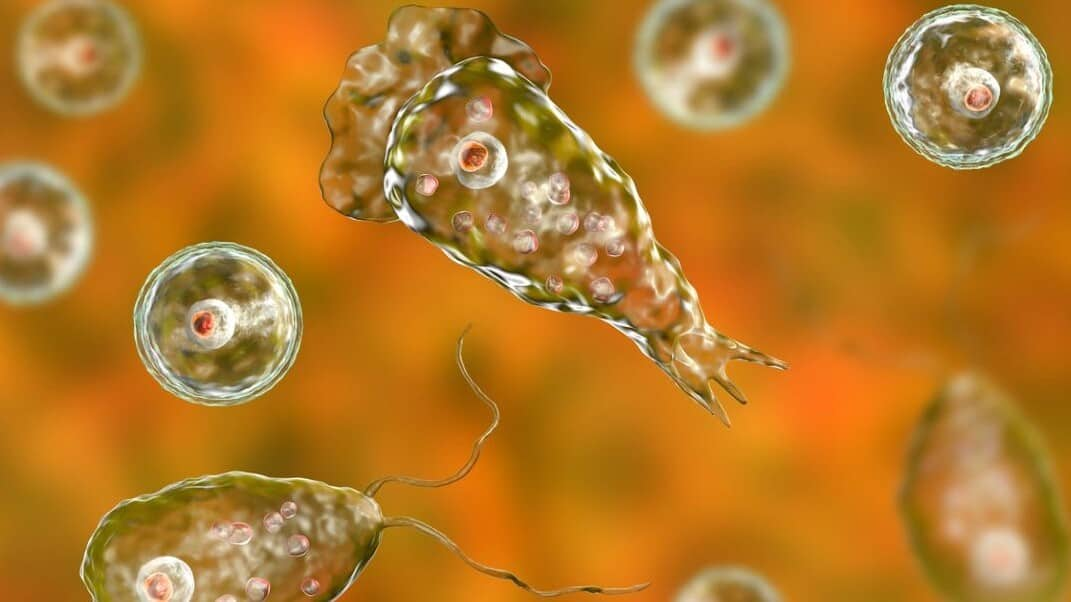
Fourth child in Kerala diagnosed with rare brain-eating amoeba infection
What's the story
A 14-year-old boy from Payyoli, north Kerala, has become the fourth child to contract amoebic meningoencephalitis since May.
This rare brain infection is caused by a free-living amoeba found in contaminated waters.
The boy is currently receiving treatment at a private hospital, where his condition is reportedly improving.
Tragically, the three previous patients have all died from this infection.
Prevention strategy
Kerala chief minister discusses preventive measures
On Friday, Chief Minister Pinarayi Vijayan convened a meeting in which many suggestions, including not bathing in polluted waterbodies, ensuring proper chlorination of swimming pools, and using swimming nose clips were given.
The amoeba enters the body through the nose from contaminated water, leading to inflammation of brain tissue and potentially fatal primary amebic meningoencephalitis (PAM).
Medical experts say this infection is caused by Naegleria fowleri, a free-living, non-parasitic amoeba found in warm freshwater sources.
Disease profile
Understanding the rare brain-eating amoeba infection
Symptoms include headache, fever, nausea, vomiting, and altered mental state.
According to the US Centers for Disease Control and Prevention (CDC), most individuals with this condition die within one to 18 days of symptom onset, often deteriorating rapidly and entering a coma within approximately five days.
This disease was previously reported in Kerala's coastal Alappuzha district in 2023 and 2017.
Medical response
Treatment and previous occurrences of the infection
Currently, there are no widely effective treatments for PAM.
Medical professionals manage the disease with a combination of medications including amphotericin B, azithromycin, fluconazole, rifampin, miltefosine, and dexamethasone.
The most recent death occurred on Wednesday night in Kerala's Kozhikode district, when a 12-year-old kid died of the rare brain infection.
Health officials believe the boy contracted the fatal infection after bathing in a local pond.